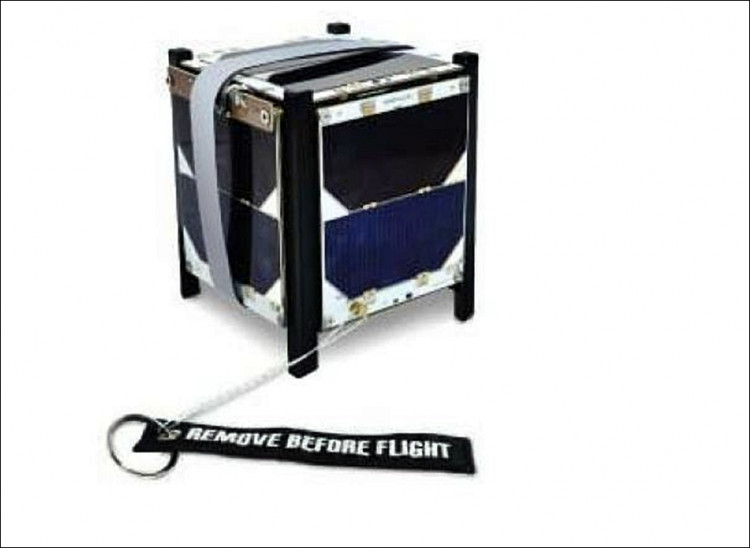India's first-ever private satellite -- ExceedSAT-1 -- is set blast-off into Low Earth Orbit (LEO) today along with 70 other small satellites from 16 countries in the largest "ride-sharing" mission ever carried out by SpaceX.
The historic mission called "SSO-A" will be launched from Vandenberg Air Force Base in California. The launch vehicle will be a Falcon 9 with a reusable first stage booster.
The launch originally set for12.02 a.m. (India Time) on Tuesday was delayed because SpaceX wanted to conduct additional pre-flight inspections. SSO-A will be historic. It will be the first time SpaceX will have taken such a large number of satellites into LEO.
It will also be the most number of satellites launched into space by any U.S. entity, public or private.
These small satellites or smallsats are either cube satellites (CubeSats) or microsatellites (microsats). There are 56 CubeSats and 15 microsats on the SSO-A manifest. These 70 spacecraft were developed by 50 different organizations.
A CubeSat has dimensions of 10 cm x 10 cm x 10 cm. On the other hand, a microsat is a satellite with a wet mass between 10 kg and 100 kg.
The satellites come from the United States, Australia, India, Italy, The Netherlands, Spain, Switzerland, the United Kingdom, Germany, Jordan, Kazakhstan, Thailand, Poland, Canada, Finland, South Korea, Brazil and South Africa.
CubeSats are a class of research spacecraft called nanosatellites, according to NASA. They're built to standard dimensions (Units or "U") of 10 cm x 10 cm x 10 cm. They can be 1U, 2U, 3U, or 6U in size. They typically weigh less than 1.33 kg (3 lbs) per U.
India's ExceedSAT-1 is a 1U CubeSat, meaning its dimensions are 10 cm x 10 cm x 10 cm. It's a communication satellite that will be placed in a polar orbit. It will have a lifespan of five years.
exceeds-1 will perform from five to six passes over India every day and will allow the public to receive signals on 145.90 Mhz frequency, with the help of a TV tuner and a USB dongle. It will work on ham or amateur radio frequencies.
ExceedSAT-1 was developed by Mumbai-based start-up, Exseed Space, which began operations in 2017. Exseed Space is known for developing small satellite platforms. It focuses focus on assembly, testing integration and satellite operations.
Exseedspace founders, Kris Nair, and Ashhar Farhan, said their goal in building ExceedSAT-1 was to democratize space exploration for commercial, government and academic customers and "help them leverage the advances in space technology to achieve business and community goals."






